'We immediately knew it was a bomb'
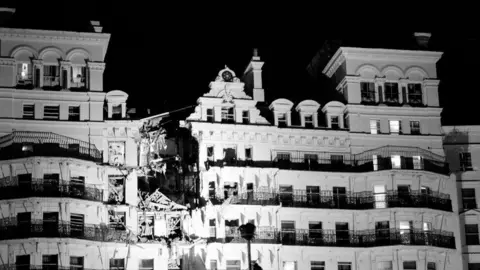 Getty Images
Getty ImagesForty years ago the IRA detonated a bomb at the Grand Hotel in Brighton in a bid to assassinate Margaret Thatcher.
Five people were killed and 31 others seriously injured in the blast on 12 October 1984, which happened during the Conservative party conference.
Patrick Magee received eight life sentences for his role in planting the bomb but was released in 1999 as part of the Good Friday agreement.
BBC South East spoke to some of those who were there on that fateful day.
'I didn't want an enemy'
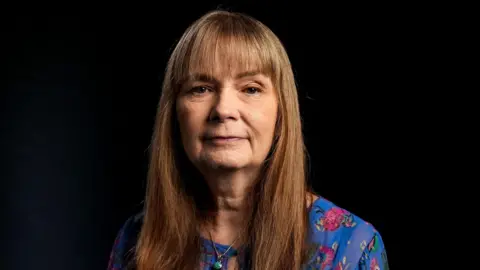 BBC/Keo Films
BBC/Keo FilmsJo Berry's father Sir Anthony Berry was killed in the explosion. She met Magee as part of an effort aimed at reconciliation. The peace activist says she wants to create "positive change" in the world.
"I heard [what had happened] very early on in the morning about 6:00. I was pretty sure that my father and stepmother were staying at the Grand.
"It was a long wait before we learnt they found his body, which I think was like 3 or 4 in the afternoon.
"My brother happened to be living in Brighton so he was our eyes and went to the hotel to try to find them.
"He was asking people: have you seen my dad? He found our stepmother in hospital and then eventually he was asked to identify the body.
"That's when we had the terrible, terrible, traumatic news that it was him.
"I am so surprised, looking back, the next thing we had to do was go and pick up our half-brother and sister who were at school and tell them their mum was injured and their dad was dead.
"There was no support, no professionals there to help us.
"That day is frozen in time forever because it was like we were in another reality. It was a reality of shock and denial, not really believing it was happening.
"The person I was before the bomb was someone who actually thought a lot about peace, who felt... very connected to people from different parts of the world. My heart could feel the pain of others being affected by violence.
"That's why two days later I made a very quiet internal decision that somehow I was going to bring something positive out of this. I wasn't going to stay a victim. I wasn't going to go out for revenge. I didn't want an enemy.
"I was even going to try and understand those who'd killed my dad."
'His beard and hair were covered in white dust'
John Reidford was a video tape editor for BBC's Breakfast Time in 1984. The 69-year-old was working late with a colleague in the Metropole Hotel - "just 20 yards away" from Thatcher's room, he says - when the bomb went off.
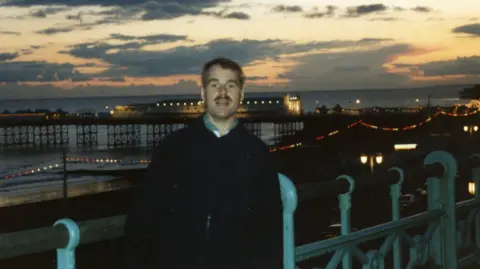 John Reidford
John Reidford"We had been working for about eight hours on this funny compilation of ironic and tongue-in-cheek moments from the conference to broadcast the following morning.
"I will remember it till the day I die. I had literally just laid down the final shot and then the bomb went off.
"We had the window open in the hotel room, so the noise was enormous. I had never heard one before, but we immediately knew it was a bomb.
"I looked up at my colleague Glynn and he looked like an old man. His beard and hair were covered in white dust.
"We both looked at each other calmly. I got up and pressed the eject button on the videotape recorder. I don't know whether I was in shock, but we both knew a light-hearted piece was never going to see the light of day.
"I just dropped it in the bin and ran downstairs."
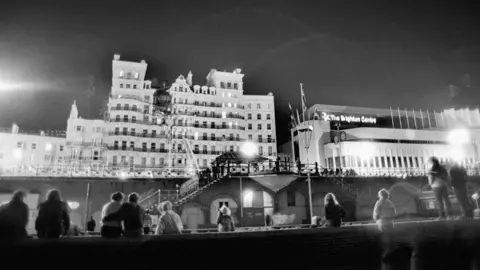 Getty Images
Getty Images"The shock of what happened came later. If we had finished working 10 minutes earlier, I would have been at the bar in the Grand celebrating with a nightcap.
"But even then, during that period, there was a feeling that danger was all around. There was nothing you could do to make yourself safe. It was just a question of luck."
'It kicked off'
Harry Brunjes was working as a junior doctor in the emergency ward of the Royal Sussex County Hospital in Brighton on 12 October. He treated many casualties from the blast, including several senior members of the Conservative Party. Dr Brunjes says he did not go home for at least a week due to the enormity of the task.
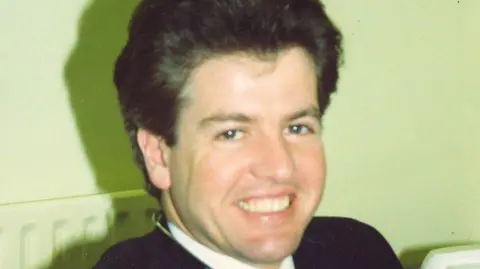 Harry Brunjes
Harry Brunjes"It was a relatively quiet morning at the hospital. I was sat having a coffee and thinking if there was a chance I could grab a couple of hours' sleep somewhere, as junior doctors in those days worked ridiculous hours. Then it just kicked off.
"I can relive every second. As politicians started coming in with serious injuries, we suddenly realised we were at the centre of a world event and the enormity of it dawned on us.
"But we didn't feel overwhelmed. We had the knowledge, competence and resilience to cope. We just knew it was going to be tough.
"When I look back at that night, I thought the Royal Sussex County Hospital performed magnificently.
"All the staff were excellent. The nurses, clinicians, technical and administrative staff, porters. When the moment came, everybody knew they had a job to do and they stood up and did it."
Follow BBC Sussex on Facebook, on X, and on Instagram. Send your story ideas to [email protected] or WhatsApp us on 08081 002250.
